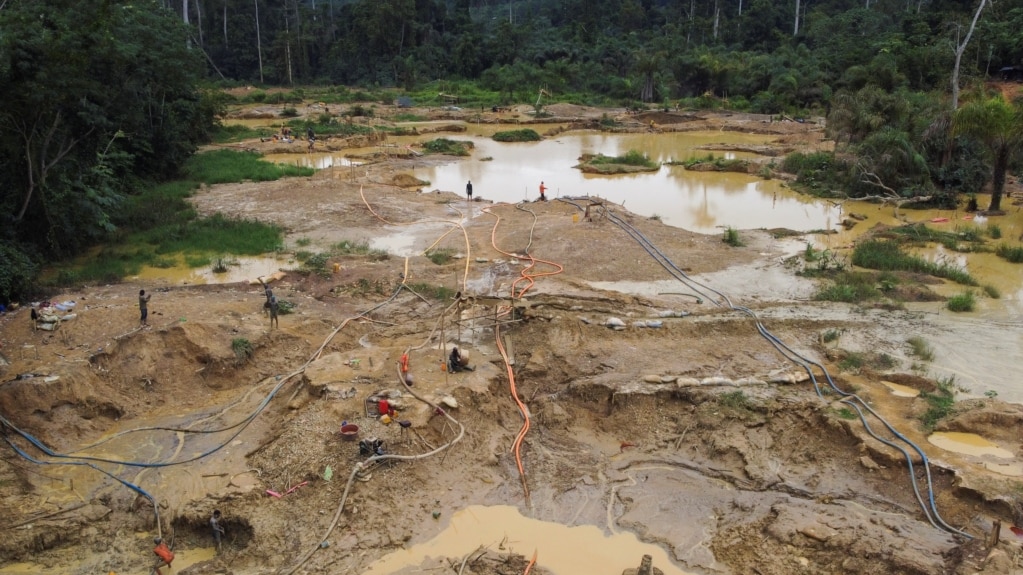Illegal gold mining operations in Ghana have reportedly increased in recent years. The activities present dangerous risks to the individuals involved as well as environmental harms. The Reuters news agency recently reported on the issue.
Reporters with the news agency visited such an operation in western Ghana. They found that workers were not using professional protective equipment as they mined for gold in muddy water filled with mercury. Groups of unofficial miners wore normal clothes and used only their hands to remove rocks.
The unlicensed mine is in the country’s Prestea-Huni Valley district. It is an example of how increasing numbers of people are turning to illegal methods to find gold to earn money.
Mining officials in Ghana say such operations can harm miners’ health, pollute waterways, destroy forests and farms, and increase crime rates.
One of the men working at the illegal mine told Reuters, “It’s risky, but I just want to survive.” The man was a 24-year-old accounting student. He did not want to be named because he is involved in illegal activities. He told Reuters he had been missing classes to search for gold because he needs the money.
The unlicensed gold mining industry is known in Ghana as "galamsey.” The industry has grown quickly over the past year. One reason for the growth was a 30 percent rise in international gold prices.
Small mines produced 34 million grams of gold in the first seven months of this year, official government records show. That was more than in all of 2023.
About 40 percent of Ghana's total gold comes from small mines — those not owned by large international companies. And an estimated 70-80 percent of the small mines are unlicensed.
News reports and human rights groups say numerous miners have died from collapsing pits in recent years. Hospitals and health centers have reported high numbers of early deaths from heart-related diseases of miners and people living in towns and villages near mines.
The health problems are linked to breathing in dust that contains heavy metals such as lead. In addition, poisonous gas from the mercury and nitric acid are released during unlicensed mine activities. Such chemicals are also dumped on the ground or in rivers. Ghana's water authority says mercury and heavy metals from mining have poisoned about 65 percent of water sources.
The illegal operations have also harmed thousands of hectares of cocoa farms and forest areas, reports data-gathering group Global Forest Watch.
Protesters have taken to the streets in Ghana’s capital, Accra, in recent weeks. They have criticized President Nana Akufo-Addo's government over a lack of attention to the problems. Some demonstrators carried signs that said "Leaders, you've failed us!"
Aboubacar Sadekh took part in a protest on the issue September 22. He told Reuters, “Galamsey has to stop. We want to live long. We don't want to fall sick. We don't want to go to the hospital."
I’m Bryan Lynn.

